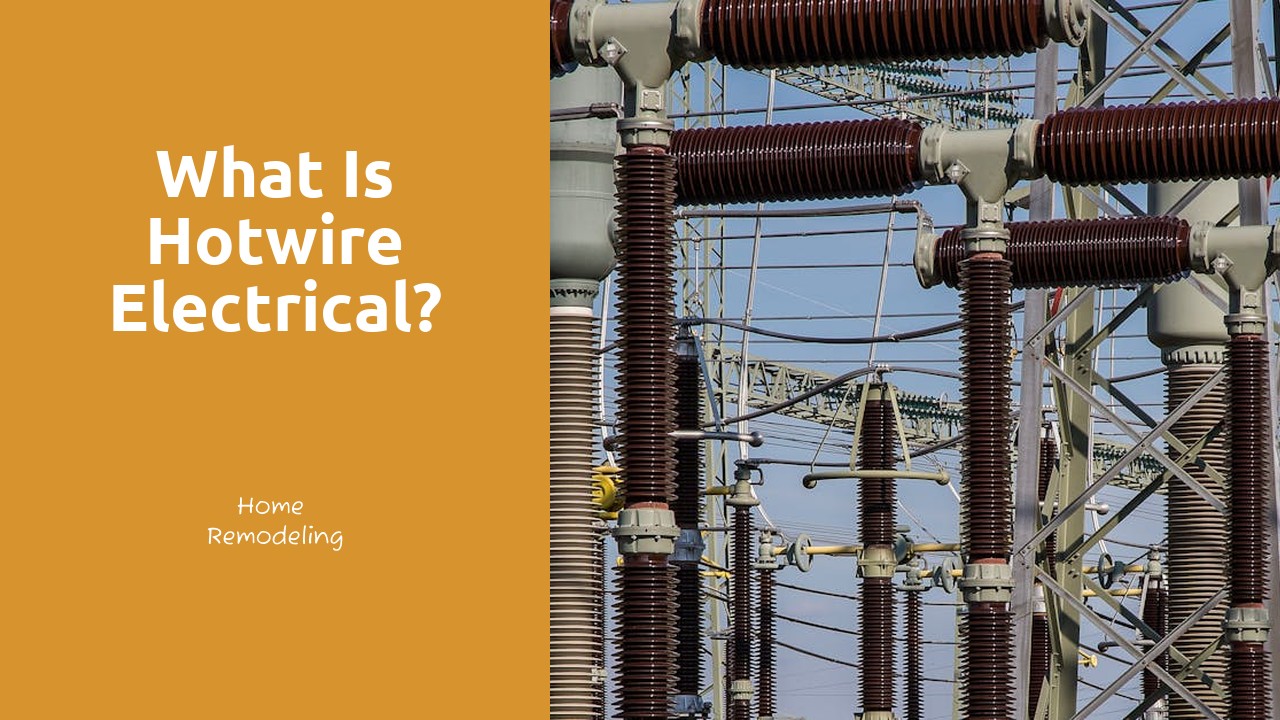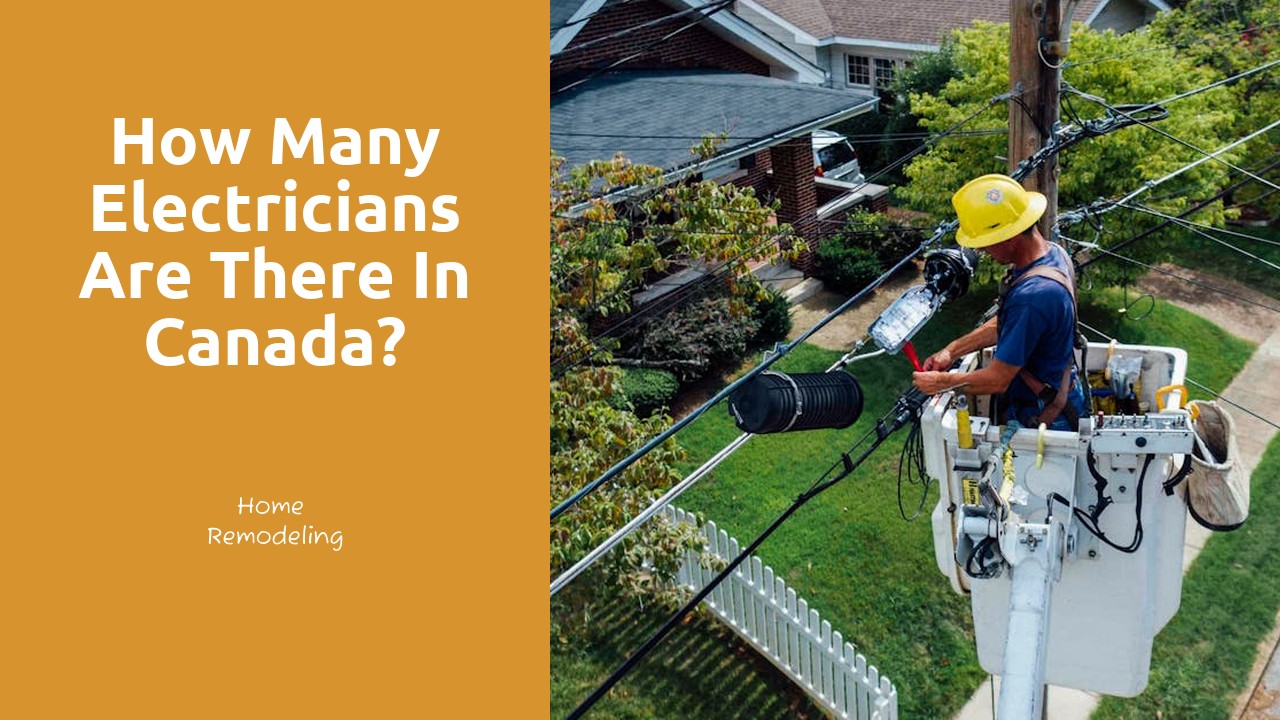
Electrical
Table Of Contents
Home Remodeling offers a comprehensive electrical service to clients across Canada. Our team of skilled electricians is experienced in handling all types of electrical projects, from simple repairs to complex installations. We prioritize safety and efficiency in every job we undertake, ensuring that all work is completed to the highest standards. Whether you need to upgrade your electrical system, install new lighting fixtures, or troubleshoot an issue, Home Remodeling is here to help. Trust us to provide reliable and professional electrical services for all your renovation needs.
Electrical Maintenance
Regular electrical maintenance is crucial for ensuring the safety and efficiency of electrical systems in homes, buildings, and industries. By adhering to a consistent maintenance schedule, potential issues can be identified and resolved before they escalate into costly failures or pose a risk to individuals. Faulty electrical components, worn-out wiring, or outdated systems can all be detected through routine maintenance checks, allowing for timely repairs or upgrades to be carried out.
Moreover, proper electrical maintenance not only enhances the lifespan of equipment but also contributes to energy conservation. By keeping electrical systems well-maintained, energy wastage can be minimized, leading to lower utility bills and a reduced carbon footprint. This proactive approach to electrical maintenance promotes sustainability and helps in preserving resources for future generations.
Importance of Regular Maintenance in Preventing Failures
Regular maintenance is a critical aspect of ensuring the longevity and efficiency of electrical systems. By conducting routine inspections and repairs, potential issues can be detected and resolved before they escalate into costly and inconvenient failures. It is essential for both residential and commercial properties to stay proactive in their maintenance efforts to avoid unexpected downtime and disruptions in power supply.
Neglecting regular maintenance can lead to a variety of problems such as malfunctioning equipment, power outages, and even safety hazards. By scheduling routine check-ups and servicing, property owners can rest assured that their electrical systems are in optimal working condition. Investing time and resources into maintenance not only prevents potential failures but also extends the lifespan of electrical components, ultimately saving money in the long run.
Smart Grid Technology
Smart grid technology is revolutionizing the way we manage and distribute electricity. By integrating advanced digital communication and monitoring systems into traditional power grids, smart technologies are enhancing grid efficiency like never before. These innovations allow for real-time data analysis, predictive maintenance, and automated responses to fluctuating energy demands, ultimately leading to a more reliable and cost-effective electrical system.
One of the key benefits of smart grid technology is its ability to facilitate the integration of renewable energy sources into the grid. By optimizing the use of solar, wind, and other clean energy resources, smart grids are paving the way for a more sustainable energy future. Additionally, these technologies enable consumers to actively participate in energy management through smart meters and demand response programs, empowering them to make informed decisions about their energy consumption and costs.
Enhancing Grid Efficiency with Smart Technologies
To enhance grid efficiency, the integration of smart technologies plays a crucial role in modernizing the electrical infrastructure. Smart grid technologies enable real-time monitoring, control, and optimization of power distribution, leading to improved reliability and reduced energy wastage. By incorporating sensors, smart meters, and advanced communication systems, utility companies can better manage electricity flow, anticipate potential issues, and respond swiftly to disruptions, ultimately enhancing the overall efficiency of the grid.
Furthermore, smart technologies empower consumers to actively participate in energy management by providing them with real-time data on their electricity usage. This transparency encourages users to make informed decisions about their consumption patterns, leading to greater energy conservation and cost savings. Through the implementation of smart grids, not only does the efficiency of the electrical system improve, but it also fosters a culture of sustainability and environmental consciousness among consumers and utilities alike.
Electric Vehicles
Electric vehicles have revolutionized the way we think about transportation. By leveraging advancements in technology, electric vehicles offer a cleaner and more sustainable option for commuters around the world. From compact city cars to sleek luxury models, there is a growing variety of electric vehicles available, catering to diverse consumer preferences and driving needs. The development of electric vehicle infrastructure, such as charging stations and battery recycling programs, further supports the widespread adoption of these eco-friendly vehicles.
As electric vehicle technology continues to evolve, innovations are driving improvements in battery capacity, charging times, and overall performance. The integration of artificial intelligence and smart sensors in electric vehicles enhances safety features and optimizes energy efficiency. With ongoing research and development, the future of electric vehicles holds promise for even greater advancements in sustainability and convenience for drivers globally.
Advancements in Electric Vehicle Technology
Advancements in electric vehicle technology have been rapidly evolving in recent years, driving the transition towards more sustainable transportation options. Manufacturers are continuously improving battery technology to increase energy density and longevity, allowing for longer driving ranges and shorter charging times. Additionally, advancements in regenerative braking systems are enabling electric vehicles to capture and store energy typically lost during braking, further enhancing their overall efficiency.
Furthermore, the development of fast-charging infrastructure is playing a crucial role in the widespread adoption of electric vehicles. With the introduction of high-power charging stations, drivers can now recharge their vehicles in a matter of minutes rather than hours, significantly reducing concerns about range anxiety. These technological advancements are reshaping the automotive industry, paving the way for a cleaner and more environmentally friendly future of transportation.
FAQS
What is electrical maintenance?
Electrical maintenance refers to the regular upkeep and servicing of electrical systems, equipment, and infrastructure to ensure smooth operation and prevent failures.
Why is regular maintenance important in preventing failures?
Regular maintenance is essential in preventing failures as it helps identify and address potential issues before they escalate, reducing the risk of costly downtime and safety hazards.
What is smart grid technology?
Smart grid technology is an innovative approach to modernizing the electrical grid by integrating advanced communication and automation capabilities to enhance efficiency, reliability, and sustainability.
How does smart grid technology enhance grid efficiency?
Smart grid technology enhances grid efficiency by enabling real-time monitoring, control, and optimization of electricity delivery, facilitating demand response, integrating renewable energy sources, and improving outage management.
What are the advancements in electric vehicle technology?
Advancements in electric vehicle technology include improvements in battery technology, charging infrastructure, range capabilities, performance, and vehicle design, leading to increased adoption and sustainability in the transportation sector.







